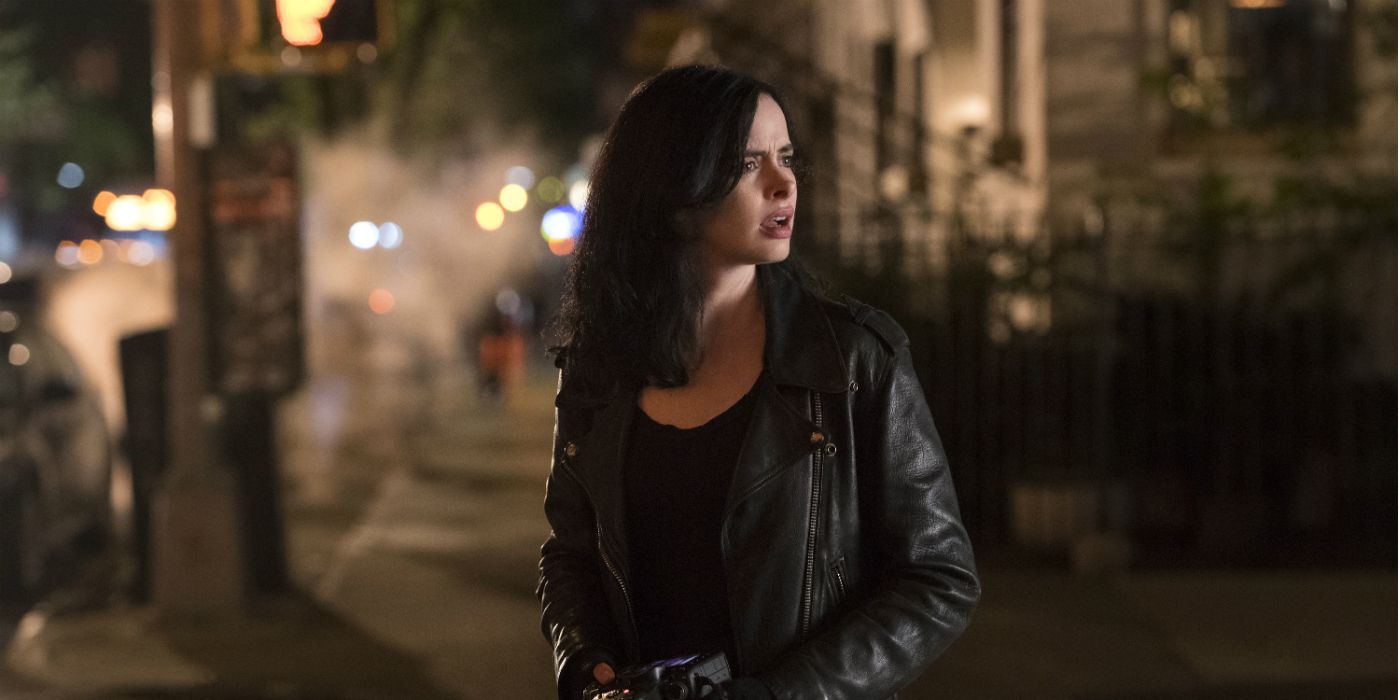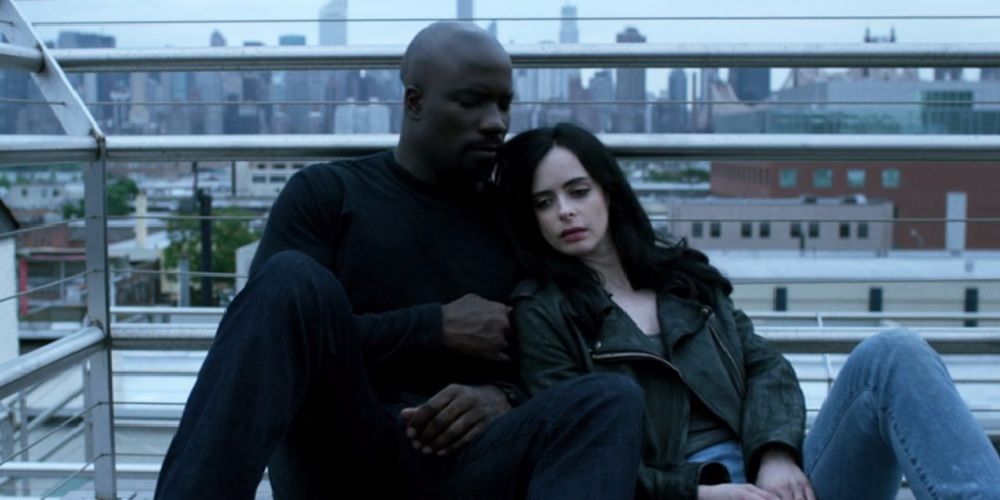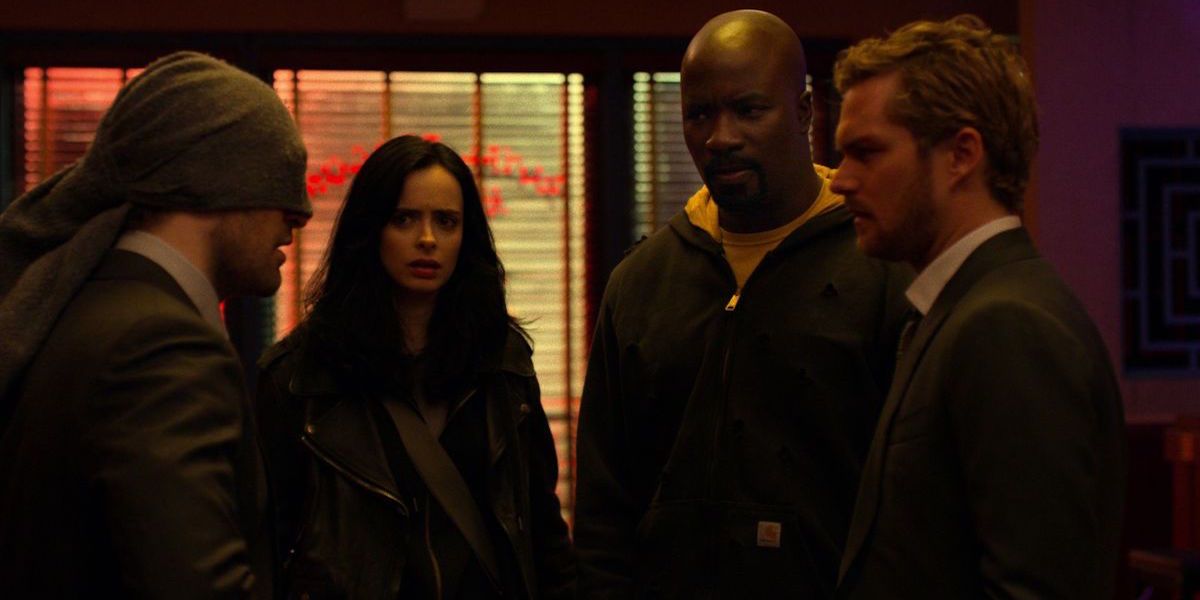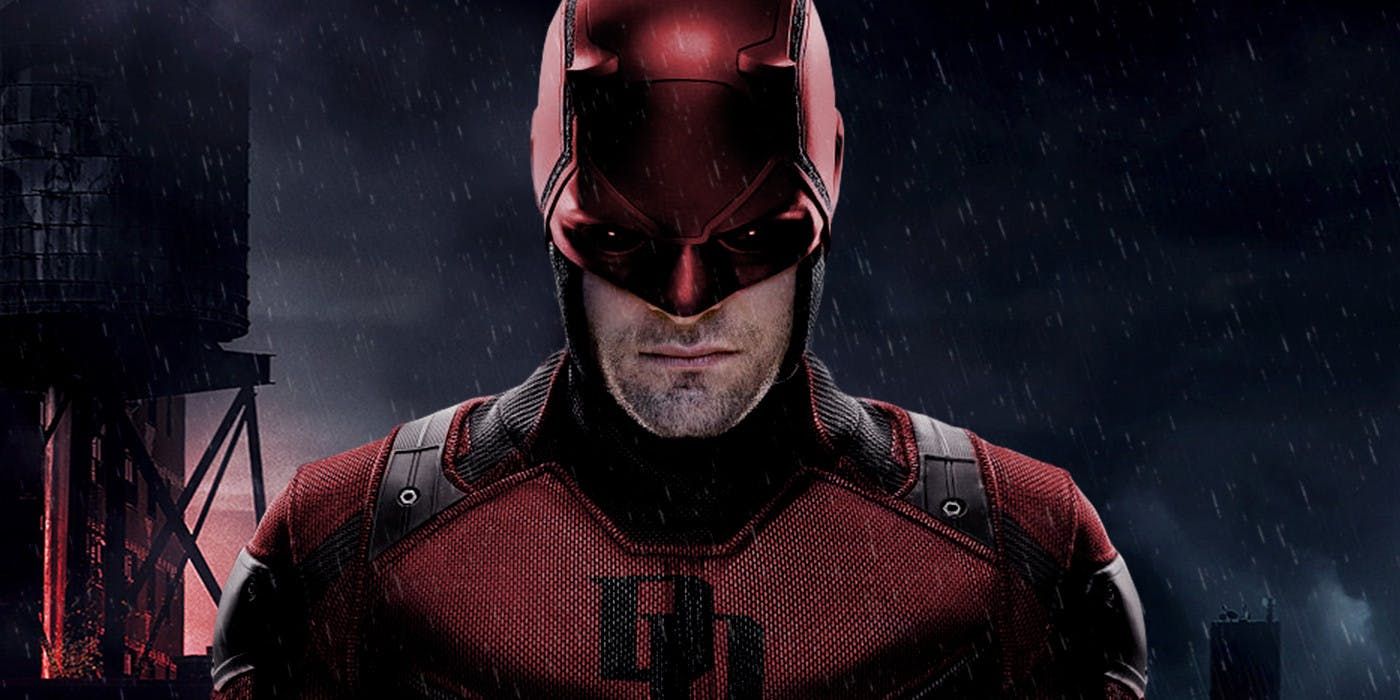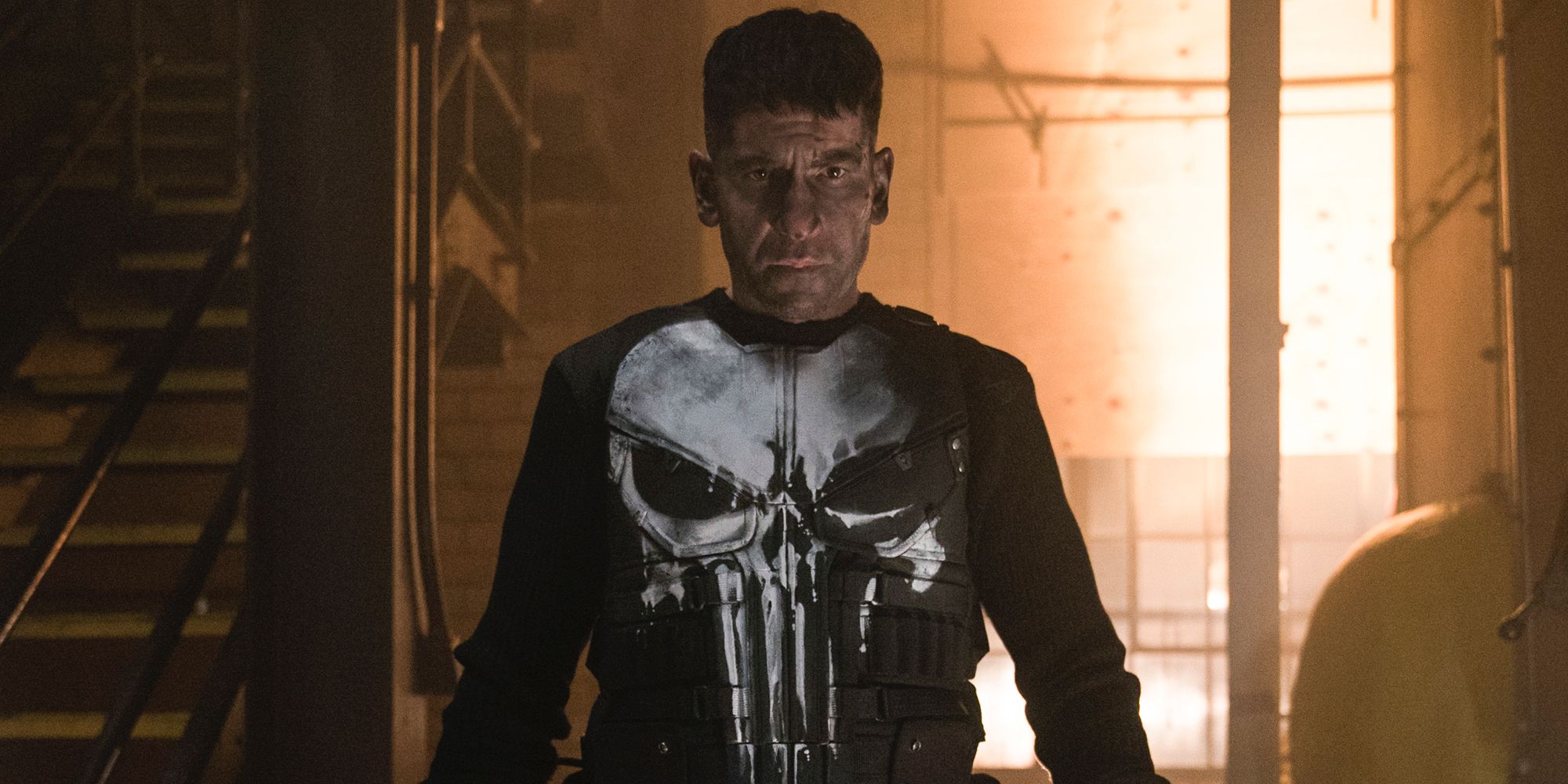Marvel's deal with Netflix has led to some of their most popular TV shows. Daredevil was a breakout hit, while Jessica Jones season 1 was seen as one of the most important superhero TV series of 2015. But as good as the Netflix shows may be, they're far from flawless, and almost every series has been criticized for one particular issue: pacing."Pacing" is essentially the speed with which the series tells its story. The best shows vary the pace subtly, with action sequences interspersed with slower, character- and plot-defining moments. Every series needs to find its own balance, shaped by the kind of story it wants to tell, the genre it operates in, and the character dynamics in play. When a show gets it right, the pacing can create real and enduring tension, ensuring both the slower- and faster-paced scenes resonate with the viewers.Related: What to Expect in Jessica Jones Season 3The Marvel Netflix shows are heavily criticized for their slow, frequently meandering pacing. It's led fans to speculate that there may be one simple solution: to reduce the number of episodes. Would that really work?THIS PAGE: DO MARVEL SHOWS HAVE TOO MANY EPISODES?
Do Marvel Shows Have Too Many Episodes?
Part of the problem is that Marvel Netflix shows are dropped all at once. That means fans will experience the series in different ways; some will binge watch, absorbing the story in just one or two sittings, while others will take their time and appreciate each episode individually. That creates a real narrative problem for the showrunners. On the one hand, they have to ensure that each episode works on its own, for viewers who take the traditional episodic one-at-a-time approach. On the other, they also have to work hard to make sure the pacing runs across the series as a whole. It's a matter of record that Marvel's Netflix shows just haven't pulled it off.
RELATED: 15 Problems With Marvel's Netflix Shows No One Wants To Admit
Netflix's screener policy only makes the issue worse. The streaming service tend to give screeners of the first five or six episodes of a series, in order to whet critics' appetites and generate reviews before the full series goes live. Unfortunately, the first few episodes of a Marvel Netflix series are typically the ones with the most visible pacing problems. They're the ones with intrusive flashbacks, lengthy investigations, and retold origin stories. Netflix's approach to screeners essentially guarantees that all the critics and reviewers will be aware of a show's pacing problems.
The classic example is Luke Cage season 1. Four episodes in, the series finally seems to pick up steam, having spent nearly four hours setting the scene. Contrast that with The CW's Black Lightning, which accomplished just as much in the space of a single pilot episode. It's little wonder fans have suggested Marvel could do with cutting down the number of episodes; it's a criticism that's been hefted at Daredevil, Jessica Jones, and especially Luke Cage and Iron Fist.
The Defenders Was Shorter, But Still Badly Told
Last year, though, The Defenders proved that the problem runs deeper - and the solution isn't as simple as reducing the episode count. The Defenders only had an eight-episode run, which in theory should have resulted in more efficient storytelling. In reality, the first three episodes were almost all setup. The series felt like a game of chess, with three episodes used getting the pieces in place in order to actually progress with the story. That particular pacing problem was particularly frustrating; the last five seasons of Marvel Netflix shows had essentially been setup for The Defenders in the first place. It simply shouldn't have been necessary.
The amount of setup in The Defenders actually exposes another problem; Marvel's lack of long-term planning. When Marvel signed up to produce the shows with Netflix, they always knew they would culminate in The Defenders. Careful, long-term planning would have ensured each hero's separate series ended with the hero in the right place for The Defenders. As a result, the ensemble show would have simply picked up the plot threads carefully left dangling by the other shows, and ran with them.
RELATED: Defenders: 15 Biggest Mistakes And Plot Holes You Completely Missed
The real problem isn't to do with the length of the series. Rather, it's to do with their lack of direction, and - quite frankly - with the actual writing for the shows. Jessica Jones season 2 is the latest Marvel Netflix series to be criticized for poor pacing, but in this case it's largely a result of the show's lacking a clear antagonist. An intrusive flashback episode interrupts the ongoing narrative; the series drops the ongoing story for 53 minutes in order to tell viewers the backstory. Meanwhile, subplots don't intersect with the main narrative thrust, creating a strange, disjointed feel to the series. All these problems come together in the vague sense that the show's pacing just isn't quite right.
Daredevil Made It Work
Appropriately enough, Marvel's best-paced shows have actually been the first two seasons of Daredevil. Daredevil season 1, for example, opened with an episode that told viewers everything they needed to know. Flashbacks are quick and effective, establishing the bare-bones of Daredevil's origin, and there's an effective balance between fast-paced action and deep, insightful character moments. It's a traditional pilot episode, setting the scene so the story as a whole can progress. Of course, as the show continues, there will be more flashbacks - especially exploring the primary antagonist, the Kingpin. But those are carefully woven into the main narrative, adding context to characters' actions in the present, giving viewers time to breathe and reflect on just what the characters have done or are doing.
RELATED: 11 Villains The MCU Improved (And 9 It Completely Ruined)
Daredevil season 2 was just as effective. On the face of it, the series should have had a very disjointed feel; there was very little connection between the Punisher arc and the Hand arc. But the show's narrative structure allowed season 2 to feel like a whole entity in its own right; the Hand plot was carefully seeded in the first half-season, while the Punisher's story continued in the background through the second. In a smart touch, the Punisher's story wove carefully back into Daredevil's in the climax, with Castle sniping from a rooftop. That made the final episode a smart conclusion to both of the major arcs.
Why are these two series Marvel's most effective in terms of pacing? It's because of the deliberate decisions made by the writers and directors. They don't work because they've got 13 episodes, but because the 13 episodes are carefully and logically constructed.
Marvel's Netflix Shows Need More Direction
The solution to Marvel's pacing problem is nothing to do with the number of episodes. It's understandable to have focused on that; after all, viewers' experience of the pacing is that things are taking too long, so the natural first reaction is to assume cutting down on the length will fix the problem. As The Defenders proved, that's not the case. The solution is for the shows to simply have a stronger sense of direction, accompanied by tighter, more focused narratives. Luke Cage, for example, was already a known quantity after Jessica Jones Season 1; the series should have been able to hit the ground running.
A core part of the problem seems to be that the Marvel Netflix shows have never been edited. Traditional television shows are edited ruthlessly, because the episode length is fixed. Scripts are designed to fit a particular length, and showrunners have to make significant edits. The best editors carefully cut scenes that interrupt a narrative's flow, or that disrupt the pace of the film or TV series. Take the big-screen example of The Last Jedi; the deleted scenes were wisely removed from the finished product, as they'd have done damage to the film's flow or pace.
RELATED: 15 Deleted Scenes From MCU Movies You Won't Believe Were Cut
But, because Netflix isn't overly concerned with episode length, there's no evidence the Marvel Netflix shows have really been edited at all. Scripts are looser, less refined, and plots meander. Each episode vaguely runs somewhere between 50 minutes and 1 hour 10 minutes. There's never been any indication scenes were cut from the finished products; no deleted scenes have ever been mentioned or released. That single detail may well be the cause of most of these pacing problems.
There's one final detail to the solution, though; Marvel need to hire an executive producer with experience of police procedurals. Most Marvel Netflix shows have an element of "mystery" to them, with the leads - or their allies - investigating an antagonist. But, because the showrunners are less familiar with police procedurals and investigative processes, they stumble to present these investigations in dramatic terms. It leads to overly convenient clues, or to brief scenes that do massive damage to the show's pacing. An executive producer experienced in police procedurals would recognize poorly-constructed detective scenes, would identify overused tropes, and would help ensure these scenes didn't disrupt the overall pacing of the series.
-
Marvel's problem isn't that the shows have too many episodes. Rather, it's simply that the series are allowed to meander, that subplots aren't controlled, and that the episodes aren't edited as they need to be. Marvel and Netflix have released eight series so far, and the complaint about pacing is one that's being heard every single time another series hits. It's time that changed.
MORE: 10 Marvel Netflix Rumors Confirmed To Be True (And 7 We Hope Aren't)
Jessica Jones season 2 is available now on Netflix.

